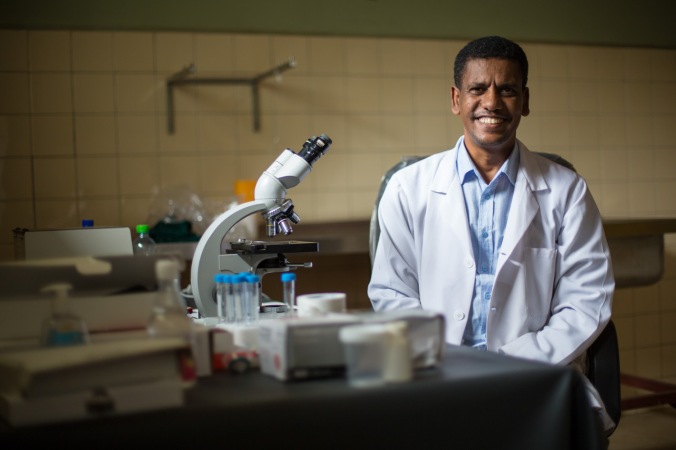
Dr. Jenberu Meskelu in the Andrology Clinic
The inability to have a child is an extremely serious problem in Ethiopian culture, says Jenberu Meskelu, a physician at St. Paul’s Hospital Millennium Medical College in Addis Ababa.
“If you are a married person, you are expected to have a child,” Meskelu said.
Many couples who have trouble conceiving have to rely on traditional medicine, holy water or other remedies that waste their time and money. But now, patients are getting help at St. Paul’s, which last month opened the first andrology laboratory in a public hospital in Ethiopia.
About two months ago, Meskelu went to the University of Michigan to receive training in andrology, which focuses on male impotence and infertility. The training was part of a rapidly expanding collaboration between U-M and St. Paul’s.
“Before going to Michigan, I had only read about andrology,” Meskelu said. “I didn’t know how it was really done.”
After returning to Ethiopia, he wasted no time practicing what he learned. Two weeks ago, he performed his first intrauterine insemination, which involves taking a semen sample, separating the fast-moving sperm from the slower ones and placing them into the woman’s womb. He plans to do another IUI next week.
It’s too early to tell whether the procedure was successful, but Meskelu is hopeful.
His lab is basic, with a couple microscopes, a centrifuge and supplies that he rations because they can be scarce in Ethiopia.
“It’s a small lab,” he said, “but it will get bigger and bigger.”










